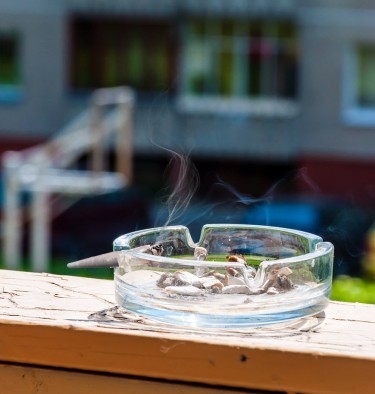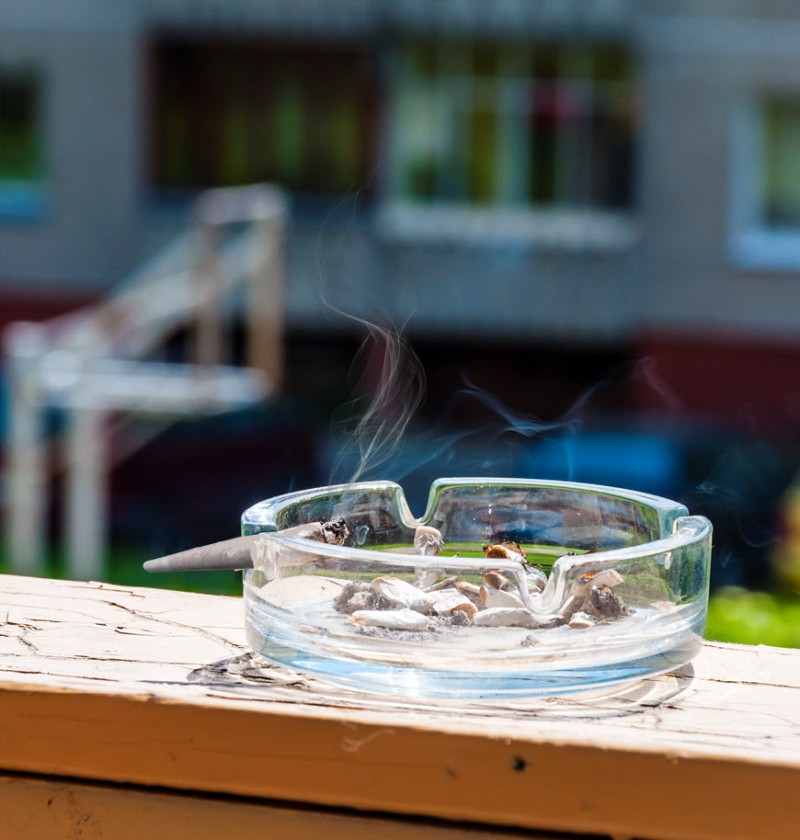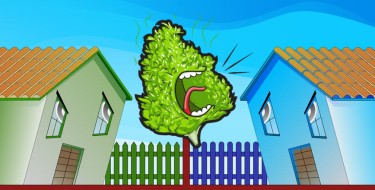
Women Wins Lawsuit over Marijuana Odor - Judges Cites Private Nuisance Clause
In a recent ruling, Judge Ebony Scott of Washington D.C. determined that Thomas Cackett must cease smoking medical marijuana in his apartment due to complaints from his neighbor, Josefa Ippolito-Shepherd. The judge concluded that while Ippolito-Shepherd couldn't establish her right to damages, she successfully argued that the odor of marijuana constituted a private nuisance. Consequently, Judge Scott ordered Cackett to discontinue his smoking activities, emphasizing that although he holds a license to purchase marijuana, he does not possess the right to disrupt others' use and enjoyment of their property.
Furthermore, Judge Scott highlighted the importance of the public interest in her decision, stating that eliminating the smoking nuisance and the harmful toxins it releases into the air is paramount. She expressed concern for involuntary smokers who have no choice but to inhale these toxins. As part of the ruling, Cackett is now prohibited from smoking at his residence or within a 25-foot radius of Ippolito-Shepherd's address.
Landmark Ruling Sets Precedent and Potential for Future Legal Cases
Judge Ebony Scott's most recent ruling, considered the first of its type, represents a crucial legal turning point. This decision may open the door for future legal actions of a similar nature.
Josefa Ippolito-Shepherd said in an interview with The Washington Post that she thinks the ruling is a triumph for those who have been bothered by the smell of marijuana, especially since it has been legalized in various forms in most states.
The 76-year-old said she had health problems, including sleep troubles, ever since she started smelling marijuana in her Cleveland Park home, where it is allowed, during the trial held in January.
She claimed that Angella Farserotu, the owner of the adjacent property, allowed Cackett, who resides in a ground-level accessory apartment, to smoke without facing any consequences. Farserotu and Cackett, however, responded by asserting that they bear no legal responsibility for Ippolito-Shepherd's ailments.
The recent decision coincides with the cannabis industry's explosive expansion and increased complaints over marijuana's odor. Due to the tension between federal prohibition and state-level legalization of marijuana, consumers, sellers, growers, and other participants in this new frontier should exercise caution. The legal ramifications connected to the smell of marijuana are currently a source of debate.
During the court proceedings, Cackett testified that using medical marijuana helps alleviate his pain and aids in achieving restful sleep following physically demanding shifts as a restaurant manager. He clarified that he typically smoked "eight to 12 puffs" at night after finishing work, preferably outdoors if weather conditions allowed. Cackett refuted the plaintiff's claim that he smoked continuously throughout the day and night, emphasizing, "I am not Snoop Dogg."
Following the judge's decision, Farserotu did not comment upon request. On the other hand, Cackett disputed the claim that he smokes inside his apartment, stating this in an email.
Josefa Ippolito-Shepherd, who represented herself in the case, expressed her satisfaction with the outcome, considering it a significant victory from a public health standpoint. She believes that the ruling sets a precedent for others facing similar circumstances. Since her case was first reported by The Washington Post, Ippolito-Shepherd has received messages from individuals contemplating their legal actions.
According to public health professionals quoted by The Post, secondhand marijuana smoke and secondhand cigarette smoke both include some cancer-causing chemicals. The federal government's designation of marijuana as a Schedule I substance has made it challenging to examine the long-term consequences and particular effects of secondhand marijuana smoke.
Concerns Arise Over Smoking Restrictions and the Federal Legal Status of Marijuana
Advocates for marijuana legalization have expressed worries that limitations on smoking locations could hinder people's ability to use the drug for medical or recreational purposes. Due to marijuana's legal status, federal disability protections do not extend to medical cannabis patients. With the newfound popularity of legalized marijuana, some cities in California have contemplated implementing smoking bans in multiunit housing due to mounting complaints. While alternative methods of consuming marijuana exist, such as edibles or vaping, smoking remains the most prevalent approach.
Leaders of the California chapter of the National Organization for the Reform of Marijuana Laws (NORML), Dale Gieringer and the deputy director of NORML, Paul Armentano, emphasized that, unlike tobacco smoke, prolonged exposure to marijuana smoke has not been linked to severe respiratory conditions.
J.P. Szymkowicz, the lawyer for neighbors who have complained in a related ongoing case, clarified that Ippolito-Shepherd's legal triumph does not create a legally enforceable precedent because an appellate ruling would be required.
According to J.P. Szymkowicz, an advisory neighborhood commissioner and the attorney representing complaining neighbors, if faced with a neighbor who has a smoking issue and the smoke is infiltrating one's home, a conversation can be initiated to resolve the matter. Szymkowicz suggests that one can communicate with the neighbor, presenting the options of resolving the issue amicably or going to court, emphasizing the potential expenses, time, and eventual outcome in favor of the affected party. This approach holds persuasive value as a means of resolving the situation.
Many advocates for the legalization of cannabis empathize with the notion that marijuana smoke can be a nuisance. They generally agree that responsible cannabis consumption entails being considerate of neighbors and one's surroundings. To address the issue, they propose the expansion and regulation of public spaces where individuals can legally consume cannabis, following a similar approach that has been implemented for tobacco consumption.
Conclusion
Regarding the smell of marijuana and its effects on neighbors, Judge Ebony Scott's recent decision in Thomas Cackett and Josefa Ippolito-Shepherd sets a significant legal precedent. Although the ruling does not create a legally binding precedent, it does pave the way for future legal actions in similar circumstances. The judgment emphasizes balancing one's personal freedoms and others' ability to enjoy and benefit from one's property.
The case highlights the persistent difficulties brought on by the murky legal landscape around marijuana, where state-level legalization contradicts federal prohibition. Due to government limits on researching the long-term effects of the drug, it also raises concerns about the public health repercussions of secondhand marijuana smoke and the need for additional research.






